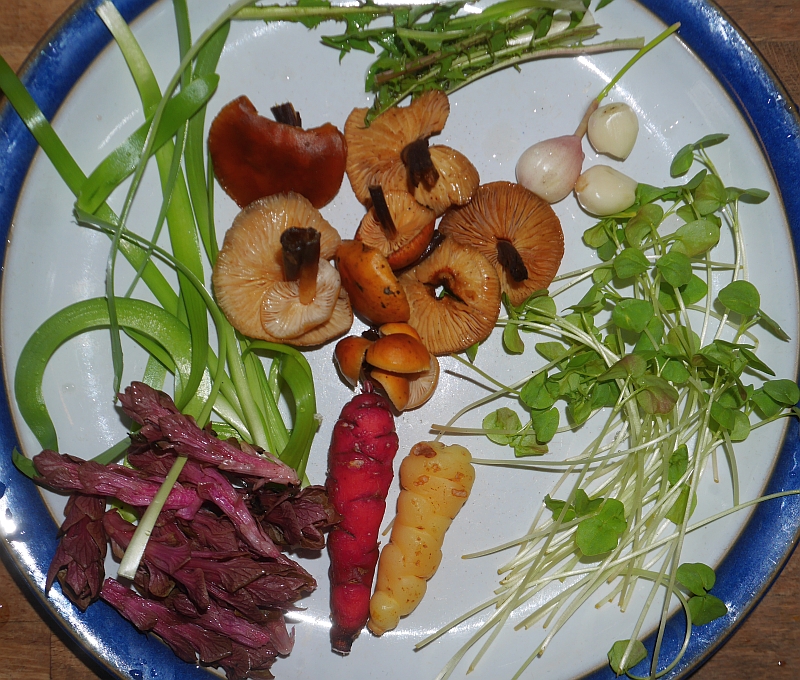This week’s perennial veg stir-fry with soba (buckwheat noodles), Japanese style contained the following (roughly left to right in the picture):
Nettles / stornesle (Urtica dioica)
Burdock / storborre roots (Arctium lappa); stored in the cellar
Wapato tubers (Sagittaria latifolia); stored in the cellar in water
Ramsons / ramsløk (Allium ursinum)
Caucasian spinach / stjernemelde (Hablitzia tamnoides)
Giant bellflower / storklokke (Campanula latifolia)
Himalayan water creeper (Houttuynia cordata) – reddish shoots
Sand leek / bendelløk (Allium scorodoprasum)
Garlic / hvitløk (Allium sativum)

Tag Archives: Caucasian spinach
Hablitzia beginnings
The video can be seen here: HABLITZIA BEGINNINGS
Seed saving talk weekend
Thanks to KVANN (Norwegian Seed Savers) colleague Andrew McMillion for coming up to Trondheim to give his seed saving course for local KVANN and Væres Venner Community Garden members!
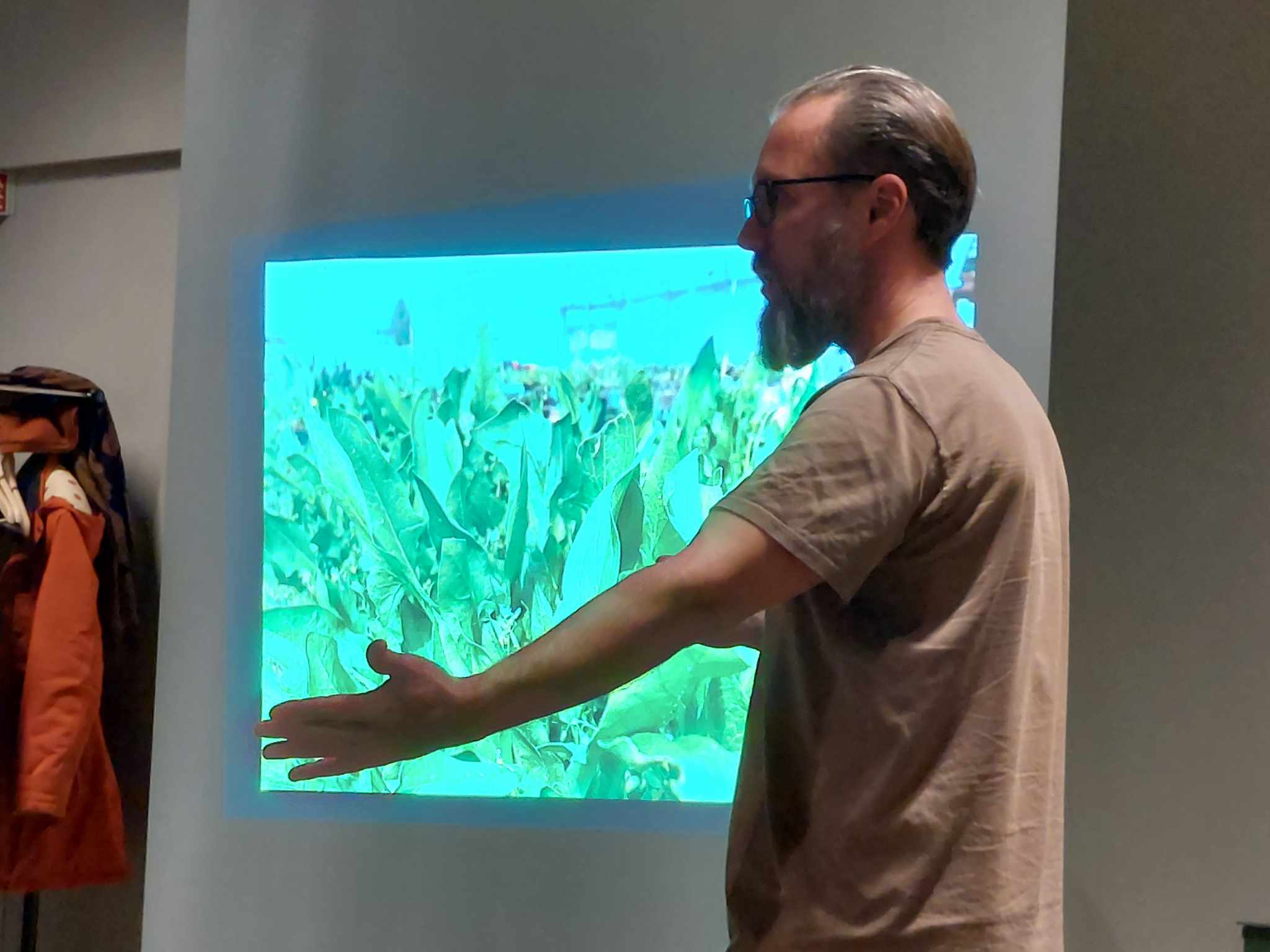
…and there was time for a Malvik visit, a seed saving and breeding chat, a tour of my seed boxes and a little salad with Witloof chicory and dandelion pizza.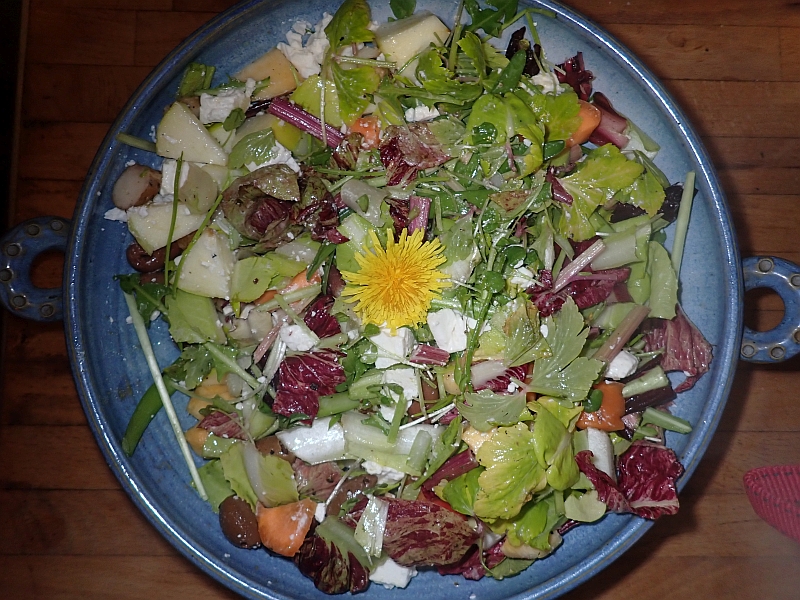
 Salad ingredients: Celery, three chicory varieties, dandelion (including one flower), carrot, Japanese yams, Allium cernuum and Hablitzia (from the garden), Hristo’s onion (Allium flavescens x nutans?), oca (2 varieties), apple (Aroma), horseradish shoots, garlic, chives, wild buckwheat shoots and turnip “Målselvnepe”
Salad ingredients: Celery, three chicory varieties, dandelion (including one flower), carrot, Japanese yams, Allium cernuum and Hablitzia (from the garden), Hristo’s onion (Allium flavescens x nutans?), oca (2 varieties), apple (Aroma), horseradish shoots, garlic, chives, wild buckwheat shoots and turnip “Målselvnepe”
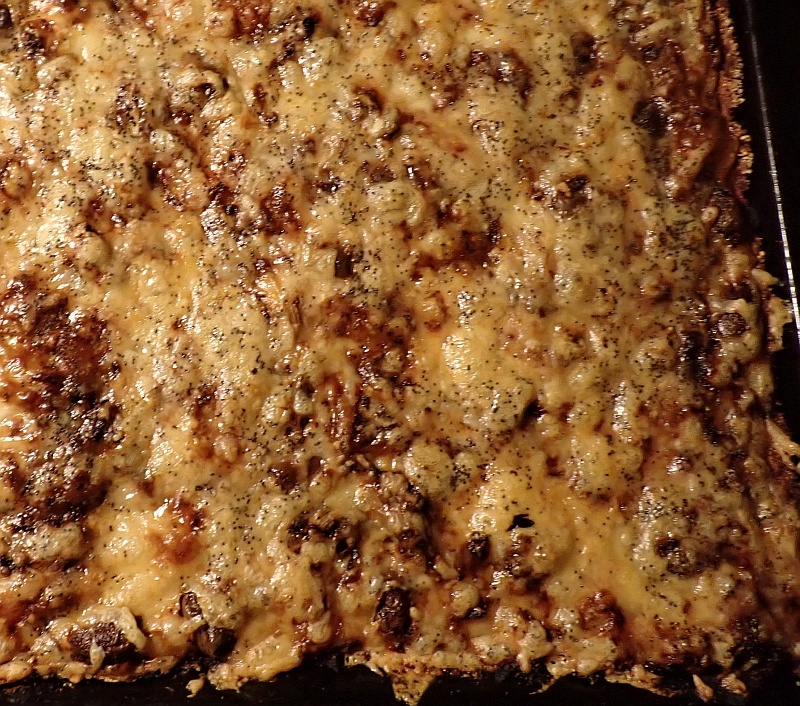
…and my seed archive: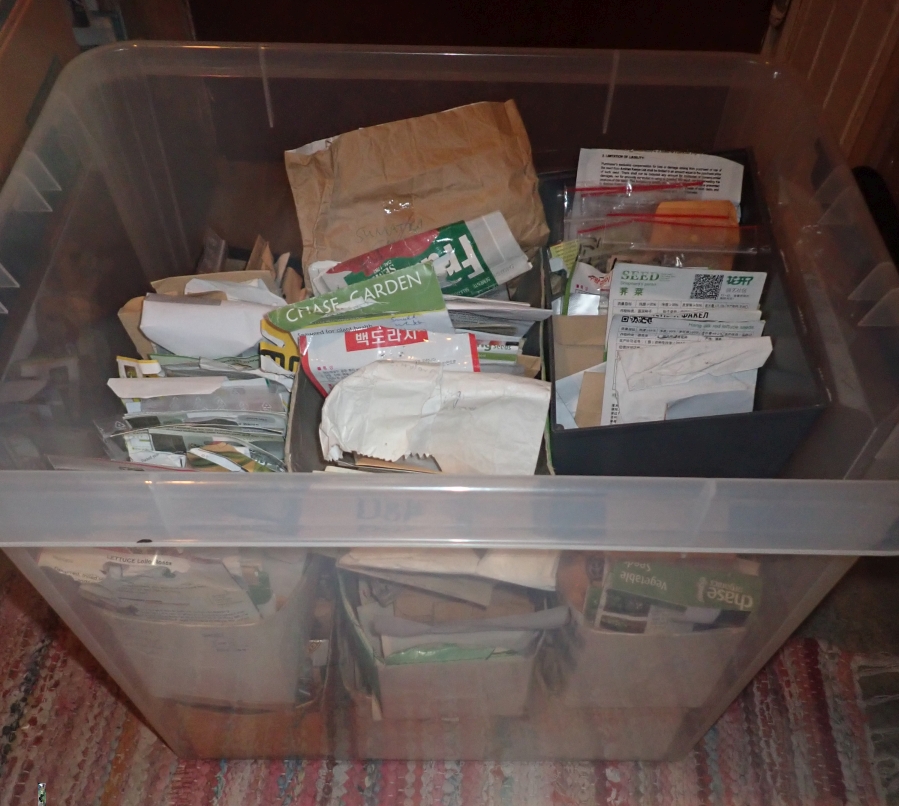
ARTIKLER OM FLERÅRIGE GRØNNSAKER FRA HAGETIDEND 2021
I 2021 publiserte Norsk Hagetidend en serie artikler jeg hadde skrevet om 10 av mine favoritt flerårige grønnsaker til Norsk Hagetidend. Alle artiklene kan nå bli lastet ned ved å klikke på lenkene nedenfor!
English: In 2021, I wrote a series of two page articles about my favourite perennial vegetables for Norsk Hagetidend (the magazine of the Norwegian Horticultural Society) in Norwegian. The complete series can be found below.
The plants are (scroll down to all the articles):
February 2021 Caucasian spinach / stjernemelde (Hablitzia tamnoides)
March 2021 Horseradish / pepperrot (Armoracia rusticana)
April 2021 Sea kale / strandkål (Crambe maritima)
May 2021 Nodding onion / prærieløk (Allium cernuum)
June 2021 Udo (Aralia cordata)
July 2021 St, Jansuien / sankthansløk (Allium x cornutum)
August 2021 Cherokee spinach / gjerdesolhatt (Rudbeckia laciniata)
September 2021 Hosta / bladlilje (Hosta spp.)
October 2021 Patience dock / hagesyre (Rumex patientia)
November 2021 Persian shallot / persisk sjalott (Allium stipitatum)
Hablitzia, Laportea and Nettle Gnocchi
What to do with the very last Sarpo Mira potatoes from the cellar? Last night’s dinner was Gnocchi made with Hablitzia leaf, Laportea canadensis (Canadian wood nettle tops) and stinging nettle tops. I must admit that our first attempt turned into a gnocchi soup, so we had a starter with exactly the same ingredients as the main course :) The second attempt was excellent though!
Hablitzia tamnoides leaves:
Canadian wood nettle (Laportea canadensis); the tops of the stems can also be used: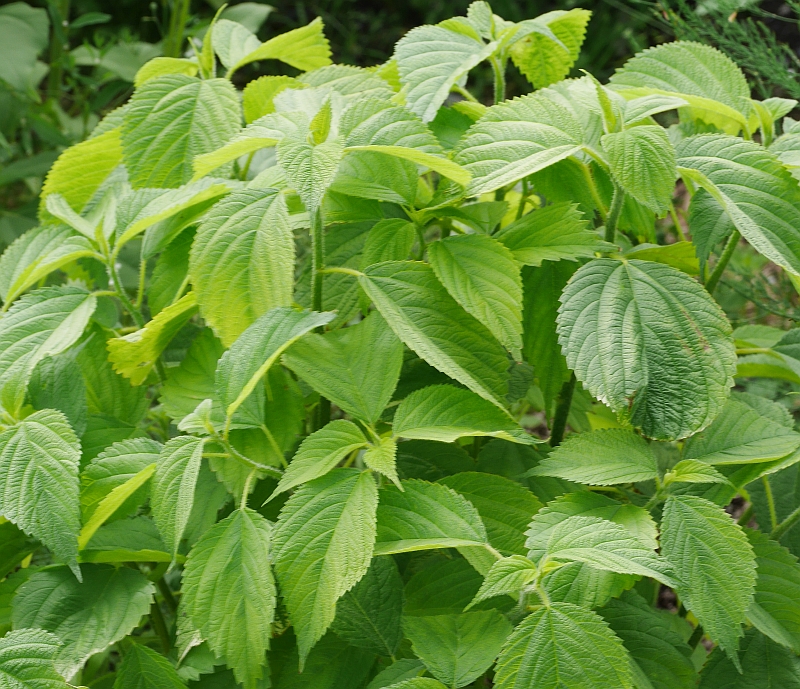 Making the gnocchi (potato used instead of grain for pasta):
Making the gnocchi (potato used instead of grain for pasta):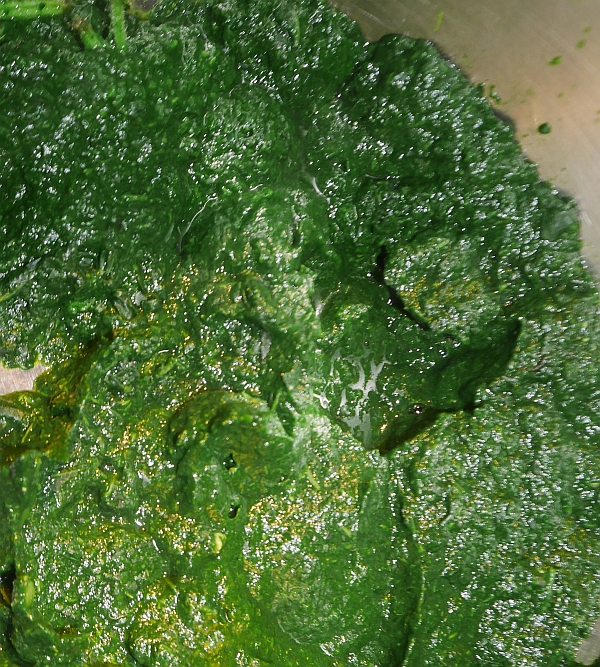
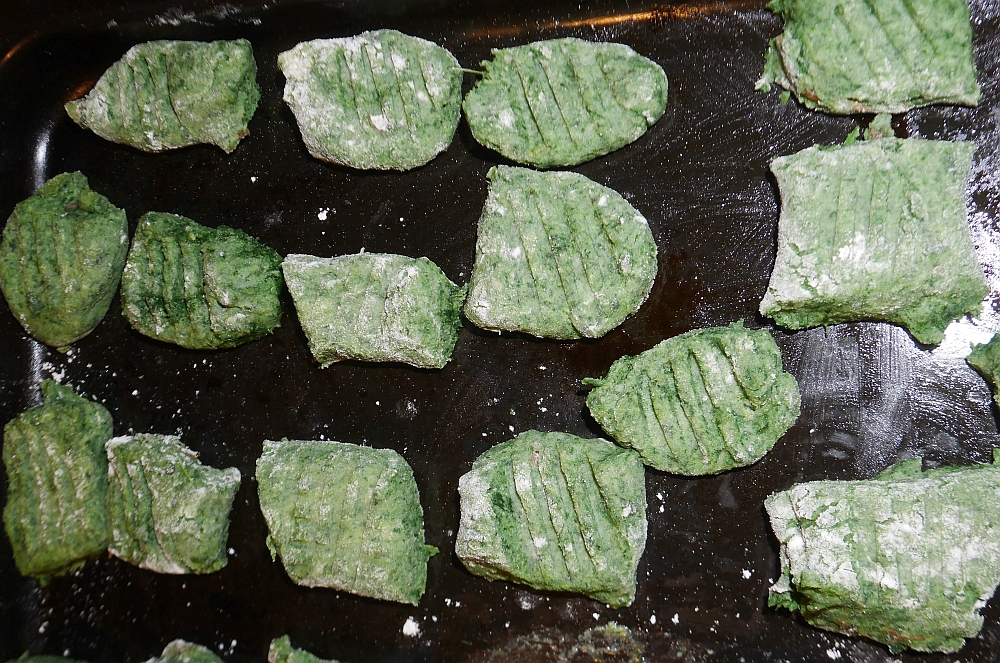

Hablitzia under Norway Spruce
Hablitzia tamnoides (Caucasian spinach / stjernemelde) has self-sowed numerous times in my garden but only up to now on cultivated beds with naked soil. Now for the first time I noticed one had popped up in dry soil under my two oldest Norway spruce trees (Picea abies; gran) which are probably in their 80s. There are a number of Hablitzia plants in a bed about 8m above this site (I believe that the shiny seeds of Hablitzia can disperse by falling on icy snow and are blown by the wind). This is an area which had been invaded by hedge mustard / løkurt (Alliaria petiolata). I’ve been systematically removing this plant from this area and other parts of the garden where it was rapidly taking over. Incidentally, another climber, Bryonia alba, appeared in the same location in 2010, but died after a few years (last picture). It wil be interesting to see if this plant manages to establish here.
No, I don’t think Hablitzia has the potential to be invasive!
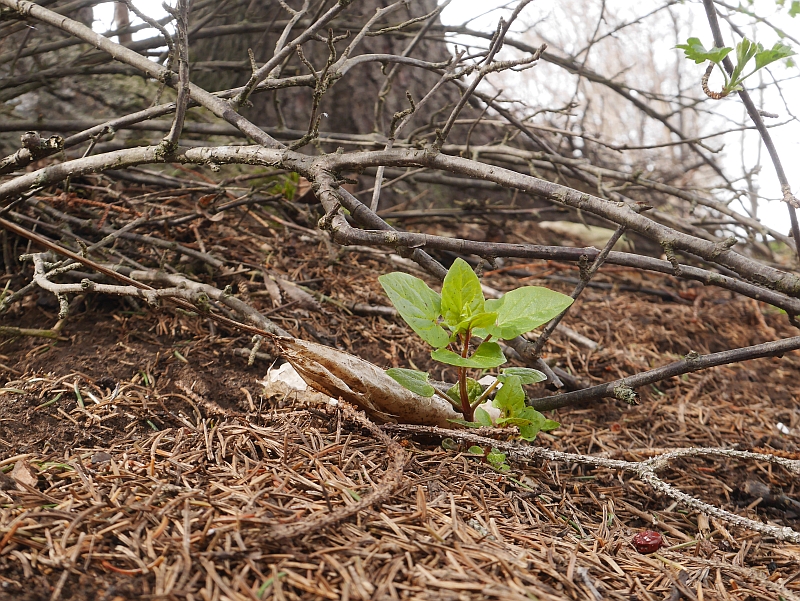
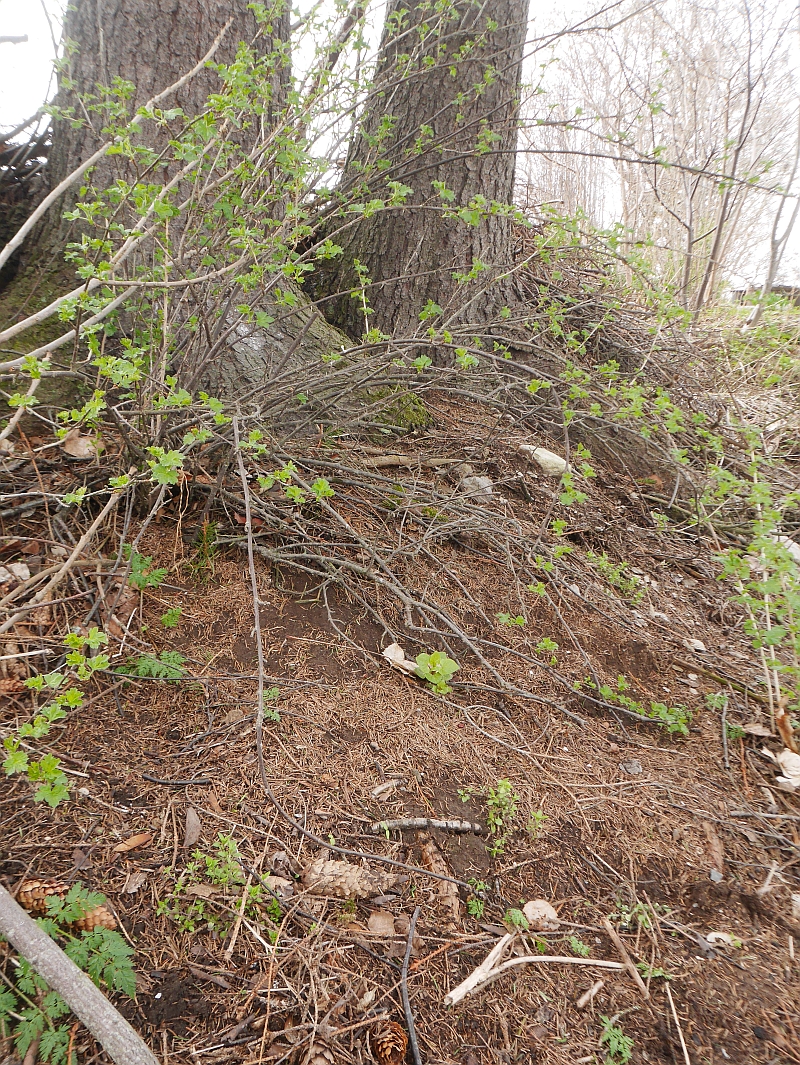
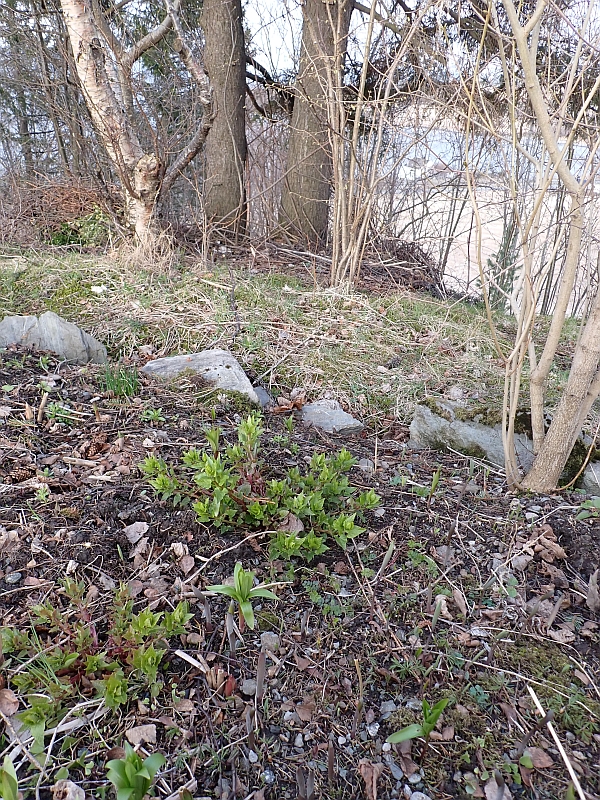
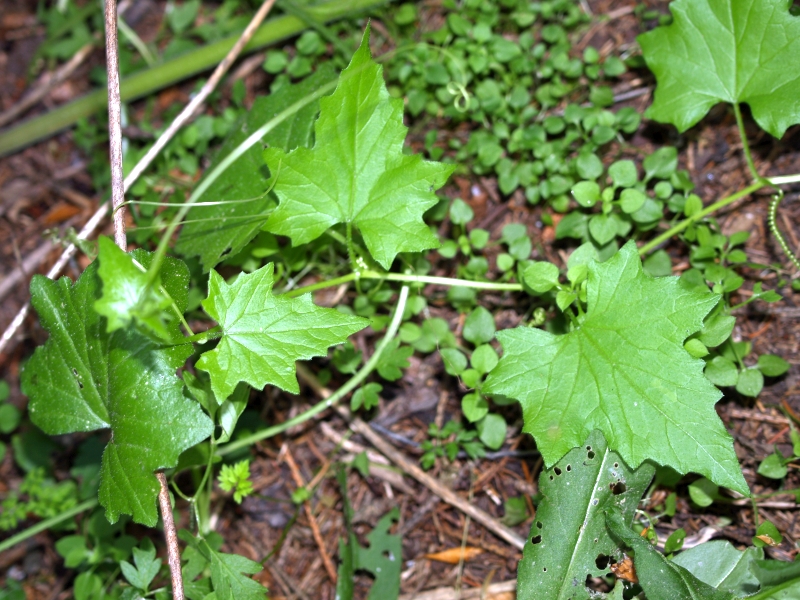
68th Birthday Mac-Cheese with 68 shoots of 4 species
Last year’s birthday dinner was the Around the World in 80 Mac-Cheese, this year’s green mac-cheese contained 68 Hablitzia shoots, 68 ramsons (ramsløk) leaves, 68 ground elder (skvallerkål) leaves and 68 stinging nettle (brennesle) shoots, with opium poppy seeds and nutty alpine bistort (harerug) bulbils on top!
The video shows me collecting the Hablitzia shoots!
Walking’s not healthy for Habbies
I’ve been growing Hablitzia tamnoides, affectionately known as Habbies, for over 20 years and this is the first registered mortality. On a shallow bed under a birch tree, plants lift during winter as if to walk off to take over the world (OK, probably just frost heave as also happens with parsnip roots), and one of them is now no more, a dead Norwegian habby :( 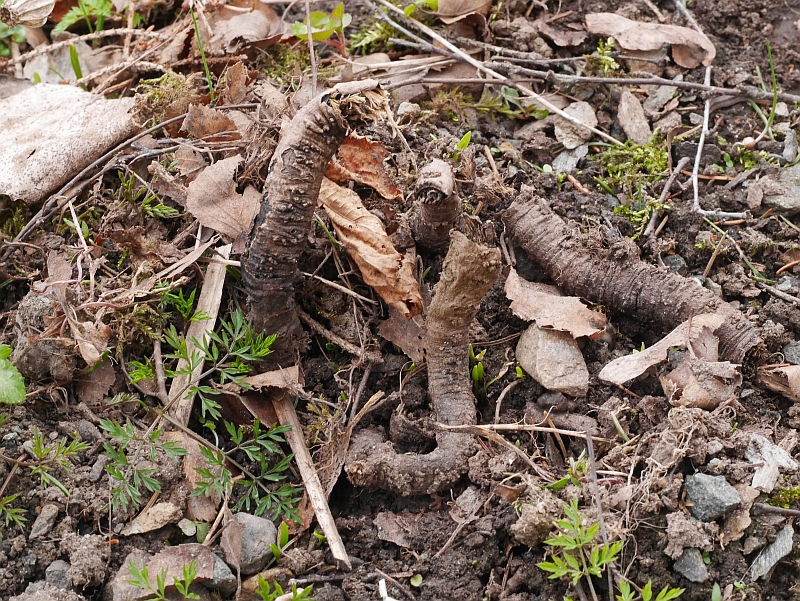
Here’s a few more that are going the same way of I don’t rescue them: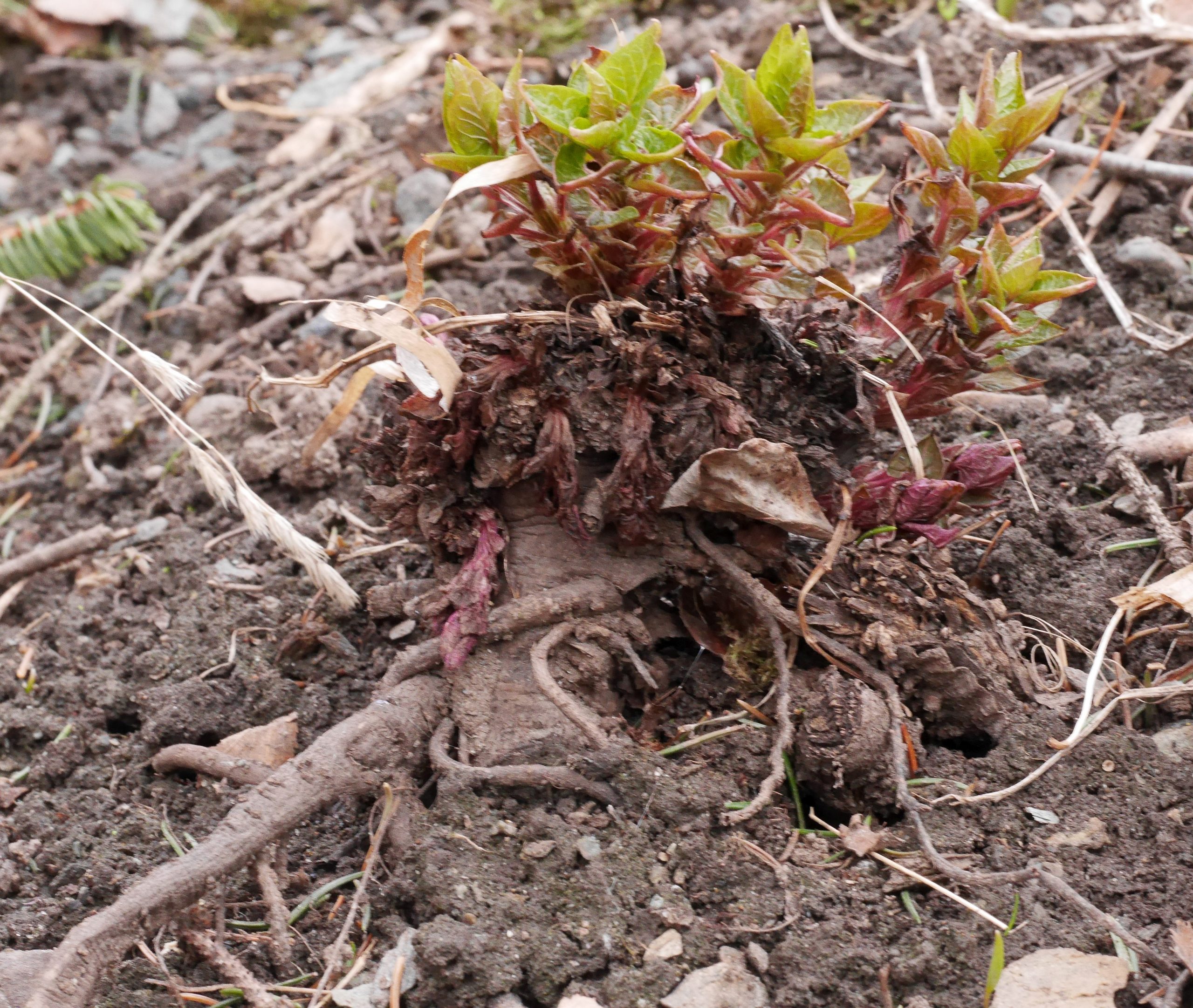
…and below is a nice little edible community where both self-sowed Siberian hogweed (Heracleum sibiricum) and stinging nettle (Urtica dioica) are growing happily in company with Hablitzia tamnoides!
Hablitzia Pinaattiohukaiset
Yesterday, I was preparing my talk for the Finnish Permaculture Association (see https://youtube.com/live/CYBqioWTr6U) and was reminded that I had mentioned in my book that Hablitzia could be used in place of spinach in Finnish spinach pancakes (pinaattiohukaiset). With my Hablitzia tamnoides (Caucasian spinach; köynnöspinaatit) shoots having grown well recently, I decided to make these Finnish-style habby pancakes for lunch to get in the mood for the talk. I must admit, I didn’t look up a recipe and just improvised (recipes make cooking complicated in my mind!) using ingredients I felt should be in there. Apart from plentiful Hablitzia shoots I mixed in whole grain oat flour, eggs, garlic, chili and pepper and fried them in butter. It was served with a salad which also included Hablitzia! First, the quotation from Around the World in 80 plants (suggested by Jonathan Bates in the US in his article on Hablitzia):
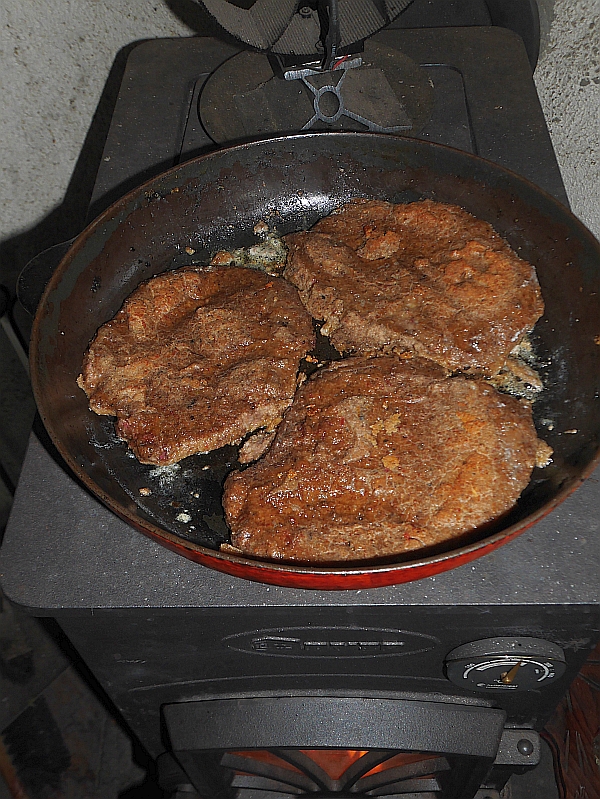

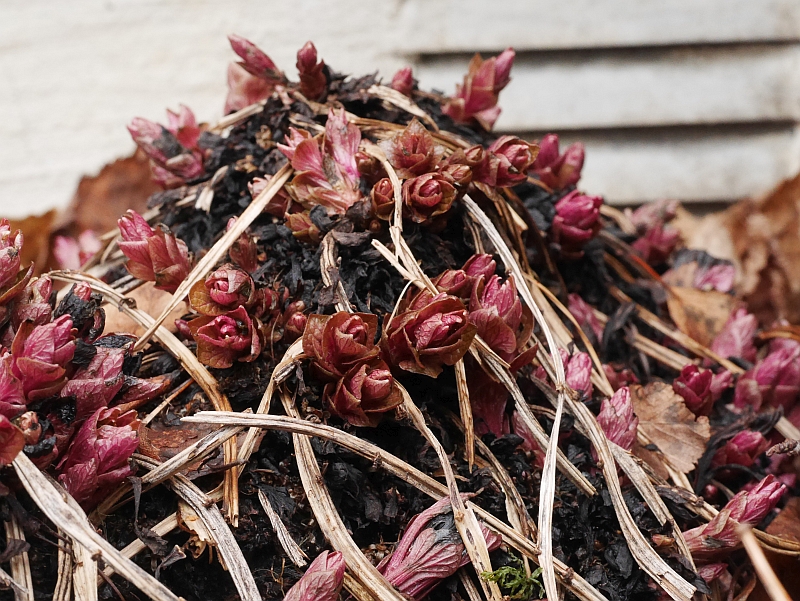

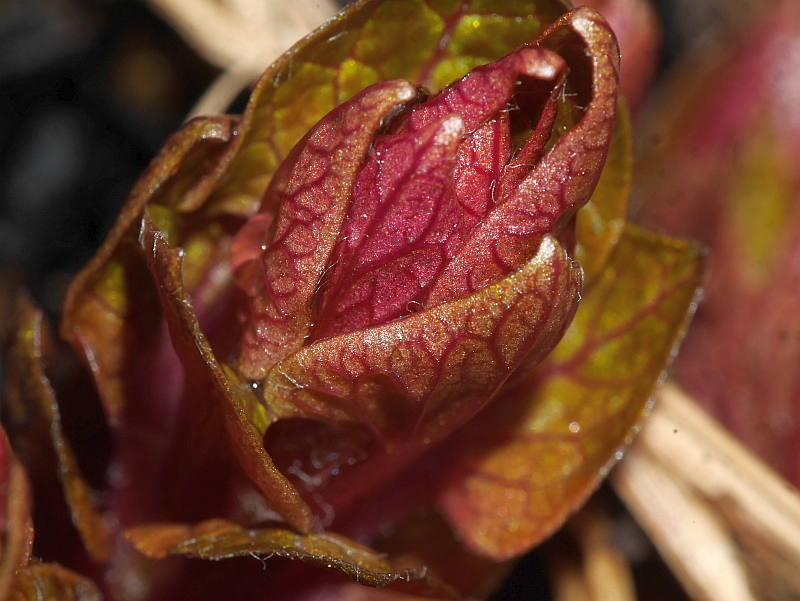


Wild Enoki, Oca and Hablitzia scrambled eggs
Wild Enoki, Oca, Hablitzia, wild buckwheat sprouts, Allium nutans with dandelion, garlic chilis mixed with scrambled eggs for a delicious home grown and foraged lunch!
Enoki is one of the hardiest fungi appearing often midwinter in mild winters. Also known as velvet shank (vintersopp in Norwegian, meaning winter fungus; Flammulina velutipes). Many had been reporting finding this species recently, and I too found some when I visited the botanical garden the other day! It’s difficult to believe that this is the same fungi as Enokitake or Enoki, sometimes offered in supermarkets and one of the most popular cultivated fungi in the Far East. The cultivated fungi are long and white as they are grown in the dark in an enriched CO2 environment which gives longer stalks.